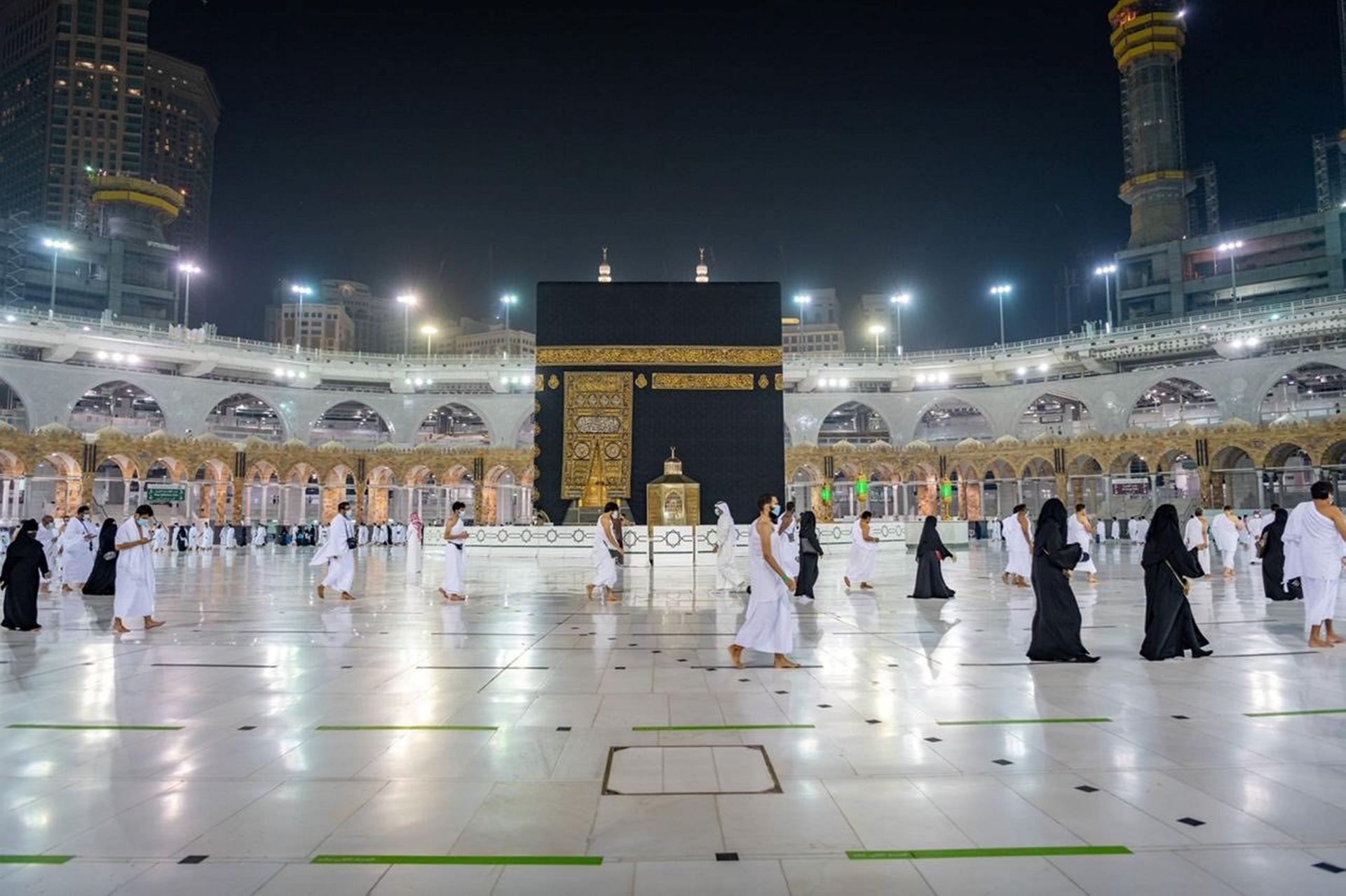UMRAH Guide
Introduction to Umrah – The Importance of Performing Umrah
Umrah holds a special value and rewards in Islam that provide spiritual purity to every Muslim who performs it. However, unlike Hajj it is not an obligation for a person, it is actually Sunnat-e-Muwaqada (highly recommended). Umrah was performed by Prophet Muhammad (pbuh) twice in his lifetime.
Umrah resembles Hajj on many levels and is often called “minor Hajj”. In fact, a pilgrim needs to perform Umrah before starting the rituals for Hajj but it can be performed anytime during the year. There are innumerable virtues of doing Umrah correctly.
The Prophet (pbuh) said, “The accepted Hajj & Umrah has no other rewards, except Paradise.” He further said, “Umrah is expiation for the sins committed between it and the next, and Hajj, which is accepted will receive no other reward than Paradise.”
Umrah is an act of spiritual purity for a Muslim who wants to perform it to earn the pleasure of Allah (SWT). It is a way to purify mind and soul, and provides inspiration of a lifetime. Allah (SWT) gives a reward for every good deed performed in his way and when a believer spends his time and wealth for His sake, He saves him from mishap and misery. Blessings of performing Umrah are immense.
According to a Hadith narrated by Ibn Abbas (RA), Allah’s Messenger (pbuh) said,
“Perform Hajj and Umrah consecutively; for they remove poverty and sin as bellows removes impurity from iron.”
One of the other benefits of performing Umrah is that a pilgrim also gets a chance to visit Madinah- the city of our beloved Prophet (pbuh), and do ziyarat of all the places related to Prophet Muhammad (pbuh) and his companions including Mosque Quba, Masjid-e-Nabawi and Jannat-ul-Baqi.

What are the Different Methods of Performing Umrah?
Umrah is a lesser form of Hajj that is not obligatory on an individual but a preferred Sunnah. It is a beautiful form of worship that takes you closer to Allah. If you get a chance to go for Umrah & perform the Umrah rituals, acknowledge the fact that it is a great blessing that the Almighty has bestowed upon you. Umrah was performed twice by Prophet Muhammad (pbuh) in his lifetime. It is a spiritual journey which has many rewards in this life and the Hereafter.
There are two types of Umrah:
Umrah-ul-Mufradah: This form of Umrah is performed all throughout the year except in the days of Hajj. It is independent of Hajj and performed any time of the year.
Umrah-ul-Tamattu: This form of Umrah is performed in conjunction with Hajj during the time of Hajj but before the commencement of Hajj rituals i.e. before 8th Dhul Hijjah.
Note: There is no difference in the procedure of the two kinds of Umrah pilgrimage. In both Umrah-ul-Mufradah and Umrah-ul-Tamattu, it is obligatory to assume Ihram at the Meeqat. If a person is in Makkah and intends to perform Umrah-ul-Mufradah, it is permissible for him to come out of Haram to assume Ihram and not move to meeqat. He can wear Ihram at Hudaybiyyah, Ja’ranah or Tan’eem.
Guidelines on Umrah with Children
Umrah is the most cherished dream for a Muslim and the trip has to be perfect. Women are only allowed to travel or to perform Umrah with a Mehram but a woman gets separated from the man who is accompanying her in Masjid-e-Nabawi and Masjid-ul-Haram where there are separate sections for men and women. Usually parents are skeptical about taking their kids on Umrah because of the separation and it becomes difficult for women to perform the rituals and also take care of the kids. But, Umrah with small children does not need to be stressful if you remember certain things. Here are some of the most important guidelines on going for Umrah with children:
> Kids need to know the purpose of the trip. It is a good idea to talk to them about why the trip is being taken and the importance of Umrah. It is unlike any other vacation and there will be regular visits to the mosques. It is recommended to educate your children about certain supplications according to their age. There is no need to worry about taking smaller kids to Umrah as the local people often bring their children on Umrah and there are a lot of children all around.
> It is really important to get the children vaccinated. It is compulsory for Infants, children, and even adults to get vaccination of meningitis ACWY135. Children between the age group of 2-15 years need to have meningitis and polio vaccinations. H1N1 vaccine is also needed. Doctors recommend these vaccinations to be taken few weeks or a month in advance as the kids might get fever or a side reaction. The last thing you want is to get your kids sick during Umrah.
Umrah with Elderly Parents
Performing Umrah with family especially the parents can be an unforgettable experience. Helping your elderly parents to complete all the religious rituals not only gives you mental satisfaction but also the spiritual gratification. It is true that the trip could be a little overwhelming because your parents are dependent on you because of their lack of strength but the rewards are manifold. Try to be patient always and remember Allah rewards every deed that is done with a good intention and for His sake. Anas ibn Malik (RA) narrated that the Prophet (pbuh) said:
Umrah for Disabled / Differently Abled Pilgrim
Umrah is a preferred Sunnah and must be performed by those who are physically and financially capable of undertaking it. If a person suffers from chronic illness or permanent disability, he does not have to perform Umrah. However, disabled Muslims who wish to undertake this spiritual journey can fulfill their wish but adequate preparations must be made before going on Umrah. A disabled person should consult with his travel agent before making any booking. Jeddah airport and the Grand Mosque in Makkah is well-equipped for the disabled. Your travel agent should ensure that the airport staff is advised about your needs in advance. Wheel-chairs are available for free in Masjid-ul-Haram.
Things/Acts Forbidden during Ihram for Umrah
When a person assumes the state of Ihram there are certain things/acts that are not allowed in Ihraam which are permissible otherwise (i.e. outside the state of Ihram). The restrictions of Ihram during Umrah are as follows:
> Pilgrims are not allowed to remove anything from their skin, hair, or nails until they relinquish the state of Ihram “Tahalul” by shaving the head (for men) or clipping of hair (for women) and throwing pebbles at Jamrat-ul-Aqabah (before performing Tawaf-ul-Ifadah).
> There is nothing wrong with using perfumed soap and it is permissible because it is not considered a perfume but it is better if the pilgrim avoid using it out of caution.
> It is permissible for woman pilgrims to use Henna or wear jewellery but it is better to stay away from such superficialities.
> Physical relationship is forbidden in Ihram. A pilgrim is not allowed to have intercourse with his wife. He should maintain a distance from whatever prompts it like touching, kissing or looking with desire. If a person has sexual intercourse with his wife in the state of Ihram, his Umrah is void. Both of them should sacrifice a she-camel and complete the rituals of this invalid Umrah. If they are incapable of offering a she-camel, they must fast for ten days. They should repent and seek forgiveness from Allah and, perform Umrah another time if they can afford it.
> Pilgrims are not allowed to chase and kill desert animals for food. Hunting is also included under the prohibitions in the state of Ihram. However, pilgrims can eat meat served to them.
Rules of Ihram for women/lady pilgrims:
It is permissible for a woman pilgrim to wear socks and shoes, because her feet are ‘Awrah (private parts of the body that must be covered in public). However, she is not permitted to wear a face veil or gloves since the Messenger of Allah (pbuh) forbade the pilgrim women from doing so, but she can cover her face and hands in any other way.
Restrictions of Ihram for Men:
Male pilgrims are not allowed to wear sewn clothes or to cover their head in the state of Ihram. However, they can use an umbrella to avoid the heat of the sun or they can carry their stuff on head.
When Are the Restrictions on Ihram Lifted?
The pilgrims come out of Ihram only after completing all the rituals of Umrah after performing Qasr i.e. shaving of the head or clipping of hair. All the restrictions / limitations of Ihram are lifted after the Qasr except physical contact with wife, which is only permissible after performing Tawaf-ul-Ifadah.
Rulings and Etiquettes of Visiting the Prophet’s Mosque (pbuh)
The ruling related to visiting the Prophet’s mosque in Madinah is unknown to many people which is the reason most of them fall into the violation of Shariah. That is why it is extremely important to understand the etiquette of visiting the mosque and his grave.
If a pilgrim wants to visit the Prophet’s mosque before or after Hajj or Umrah, it is permissible for him to do so. However, he should have the intention to visit the mosque and not the grave because travelling to a place for worshipping does not include visiting graves. Travelling with the intention of worshipping only includes three holy mosques: Masjid-Al-Haram, Masjid e Nabawi and Masjid e Aqsa as stated in the following hadith;
“No journey should be undertaken to any mosque except three: al-Masjid al-Haram, this mosque of mine and al-Masjid al-Aqsa.” [Bukhari]
You must understand that traveling to Madinah to perform prayers in Masjid e Nabawi is in no way connected to Hajj or Umrah rituals. It is not a Sunnah act of Hajj or Umrah and visiting the mosque will not perfect your Umrah rituals. However, it is true that there are rewards of performing prayers in this sacred mosque as highlighted in the following Hadith narrated by Abu Hurayrah(RA) that the Prophet (pbuh) said:
“Performing a single prayer in this mosque of mine is better than performing a thousand prayers in any other mosque, except in Masjid Al-Haram. [Al-Bukhari and Muslim]

